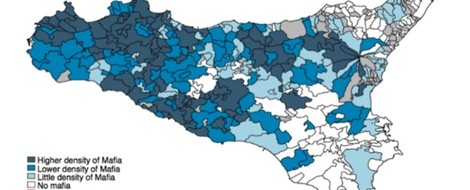Your podcast discovery platform
Curious minds select the most fascinating podcasts from around the world. Discover hand-piqd audio recommendations on your favorite topics.

piqer for: Boom and bust Globalization and politics Global finds
Associate Professor of Economics at George Mason University and currently a National Fellow at the Hoover Institution, Stanford. Educated at Oxford, Mark's main interests lie in economic history and comparative development. He is currently writing a book (with Noel Johnson) on the origins of religious freedom in western Europe. He has also published papers on state formation in Europe and China, weather shocks and pogroms in the middle ages, and private policing in 19th century England. More details about his research can be found on his webpage. He also blogs at Medium and Notes on Liberty.
Weak States: Causes And Consequences Of The Sicilian Mafia
Economists Acemoglu, De Feo and De Luca study the economic and political factors responsible for the spread of the Mafia in 19th century Sicily. They argue that the rise of a popular socialist movement – the Peasant Fasci – prompted landlords to ally with the Mafia in order to combat peasant demands.
Their empirical analysis (drawn from this research paper) suggests that up to 37% of the strength of the Mafia in 1900 throughout Sicily may have been due to its deployment against the Peasant Fasci.
The consequences of the Mafia were profoundly negative. The presence of the Mafia in a municipality is associated with lower literacy and higher infant mortality. The authors hypothesize that the presence of the Mafia on the political sphere was also important. Areas where the Mafia was dominant saw less political competition and hence less effective and responsive local government.
